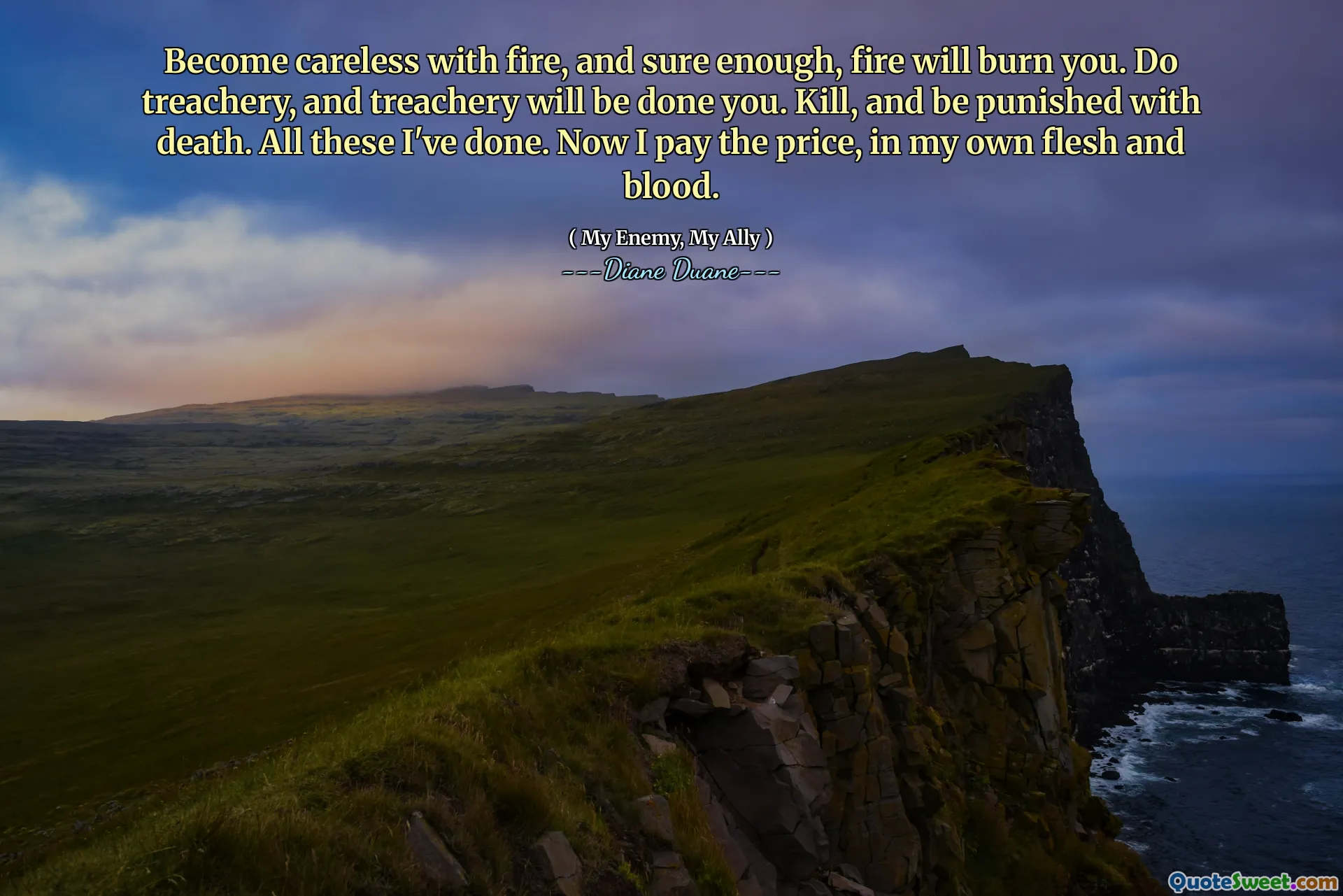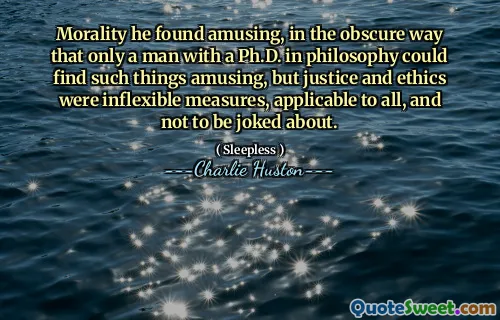
Become careless with fire, and sure enough, fire will burn you. Do treachery, and treachery will be done you. Kill, and be punished with death. All these I've done. Now I pay the price, in my own flesh and blood.
This quote from Diane Duane's My Enemy, My Ally provides a poignant meditation on consequence, justice, and the inescapable nature of accountability. The metaphor of fire symbolizes the dangers of reckless actions, serving as a vivid warning that negligence invariably leads to harm—specifically the harm one causes cannot be evaded indefinitely. It touches on a universal principle: actions have consequences, often returning to the doer in equal or multiplied measure.
This reflection is deepened by the moral symmetry presented: treachery invites treachery, and killing merited the ultimate punishment of death. Here, the narrator acknowledges having committed grievous acts and now must face the repercussions directly, "in my own flesh and blood." This phrase powerfully conveys the inextricability of the personal cost of one's deeds, emphasizing pain that is intimate and unavoidable.
The quote transcends the literal and can be seen as a broader life lesson. It suggests that ethical and moral infractions do not remain abstract violations but concretely shape our realities, identity, and suffering. The acknowledgment of paying the price reveals a moment of self-awareness and acceptance, which is critical for growth and redemption.
In a world often riddled with denial, evasion, and scapegoating, this honest confrontation is a raw testament to integrity and the human condition. It serves as a stark reminder to act with care and consider the full weight of our choices—mindful that the forces we unleash can and will return, weaving our destinies in consequence and justice.




